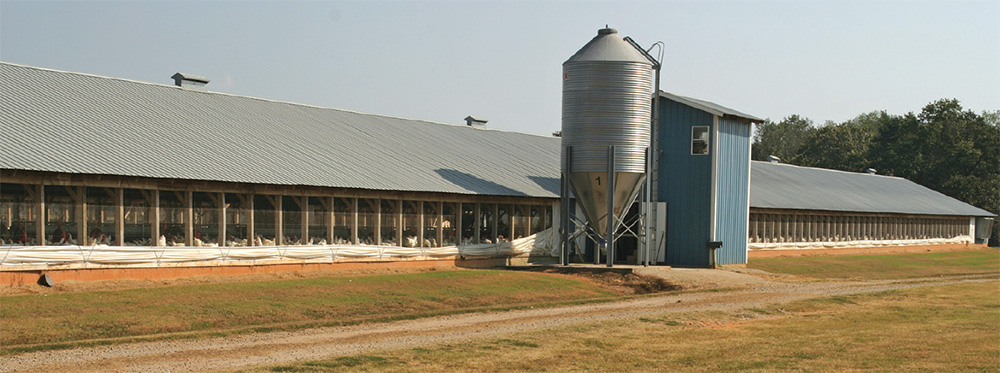Agriculture + Lifestyle
GFB poultry house inspections benefit growers
Posted on June 6, 2018 8:00 PM
By Joey Shipp, GFB Mutual Insurance Company
The Georgia Farm Bureau Mutual Insurance Company (GFBMIC) insures poultry houses across the state with a total value of approximately $700 million. This makes our company the largest insurer of Georgia poultry farms by a wide margin.
We have a dedicated staff of experienced professionals including agents, field underwriters and risk managers who work hard to support our poultry growers by providing them with sound insurance coverage that protects their investments. Our agents sell the policies while our field underwriters and farm risk managers evaluate the risks for new and existing insurance business to determine if it confirms to GFBMIC underwriting criteria.
One of the services included with GFBMIC poultry house insurance is inspections of the poultry farm. These inspections provide a valuable service to our members in a variety of ways.

Inspecting poultry houses while they are being built allows us to monitor the construction process to ensure the contractors adhere to the modern building standards University of Georgia engineers recommend and GFBMIC has adopted for our poultry house policies. You can read more about these guidelines at www.gfb.ag/poultryhouses.
When qualified, licensed, professional contractors build poultry houses according to the UGA guidelines, the houses are well-constructed and cost efficient. The houses are more likely to withstand the weight of ice and snow North Georgia winters often bring and the high winds of severe storms we’re experiencing more often throughout the state. High quality construction benefits poultry growers and GFBMIC.
Farm Bureau professionals inspect the existing poultry houses we insure every few years. This enables us to detect changes in the physical condition of the houses that occur as a result of age. These inspections also give us an opportunity to visit with farm owners and recommend steps they can take that may extend the life of the house and lead to a safer farm overall.
If we can discover issues such as erosion, cracks in concrete foundation walls, failure of roof and truss components, or electrical issues early, costly damage can often be avoided.
Regularly reviewing your farm insurance accounts with an agent or underwriter will ensure that new structures and equipment are added to the farm policy as needed and that existing coverage limits are increased or decreased to appropriate levels as values change. The recommended limit of coverage for an older house will often be different than the amount of coverage for a new house of the same size.
Factors such as age, condition, upgrades in equipment, and major renovations all determine the overall value of poultry houses. GFBMIC utilizes proven methods to properly evaluate each poultry house based on its unique characteristics.
GFB insurance employees understand the importance of following strict biosecurity measures during our farm visits. Farm owners can be assured that before we drive onto the property we have obtained permission to do so.
When specific rules are in place, we abide by them. Otherwise, we follow the Georgia Poultry Laboratory Network (GPLN) Basic Biosecurity Protocol. This includes sanitizing our wheels, tires, hands and shoes, and using disposable coverings for clothing and hair to help ensure that flocks remain free of disease. We prefer to visit farms when poultry houses are empty, and we try not to inspect more than one poultry farm per day.
For decades, poultry growers have trusted Georgia Farm Bureau with their insurance needs. We value that trust and count it a privilege to serve Georgia farmers. The poultry house inspections we provide are an important contribution to the overall quality of Georgia poultry farms. Contact your local Farm Bureau agent to schedule a detailed review of your insurance and an inspection of your property.
Joey Shipp is a member of the GFB Mutual Insurance Company’s Underwriting Department. He is the farm risk manager for GFB Districts 6-10 and has been employed with the company for 26 years.